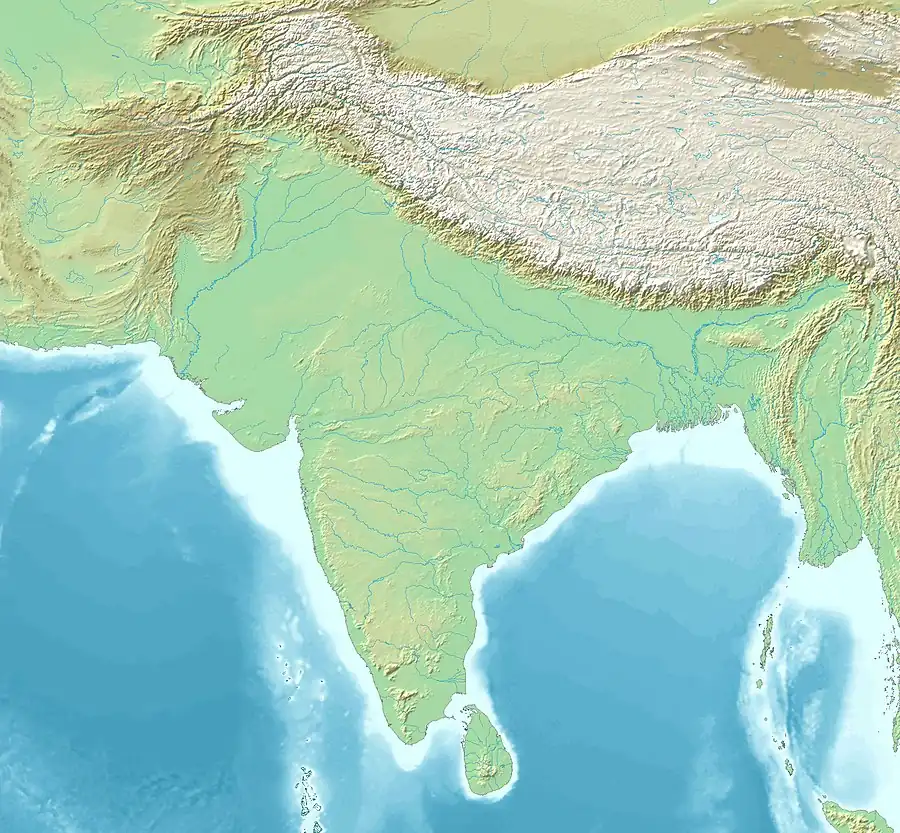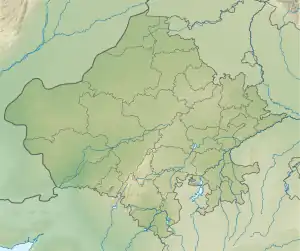Battle of Singoli
The Battle of Singoli (1326 CE) was fought between the forces of Mewar, led by Hammir Singh, and the Tughlaq forces, led by Mohammad bin Tughlaq, at Singoli, in present-day Madhya Pradesh, India, in which Hammir Singh defeated Tughlaq forces and took Muhammad bin Tughluq as a prisoner.[3]
| Battle of Singoli | |||||||
|---|---|---|---|---|---|---|---|
| |||||||
| Belligerents | |||||||
|
|
| ||||||
| Commanders and leaders | |||||||
|
Hammir Singh Junsi Kachwaha[2] | Muhammad bin Tughluq (POW) | ||||||
 Location within South Asia  Battle of Singoli (Rajasthan) | |||||||
Hammir Singh had gained control of Mewar by evicting Maldev's son Jaiza, the Chauhan vassal of the Delhi Sultanate. Jaiza fled to the Delhi court of Muhammad bin Tughluq, prompting Tughlaq himself to march towards Mewar with his strong army. In the ensuing battle, the Tughlaq army was defeated and Muhammad bin Tughlaq was taken prisoner. He was kept prisoner in Chittorgarh for three months and released after the Sultanate ceded Ajmer, Ranthambor, Nagaur and Sopor; and paid 50 lakhs rupees and 100 elephants as ransom to Hammir Singh.[3][4]
Aftermath
Hammir Singh took control of Ajmer, Ranthambore, Nagaur, and Sopor, and also his authority was recognized by other Rajput chiefs.[3]
References
- Āghā Mahdī Ḥusain (1938). The Rise and Fall of Muhammad Bin Tughluq. Luzac. p. 95.
A battle was fought near the village of Singoli in which Hammir defeated the Sultān, and took him prisoner
- V.S Bhatnagar (1974). Life and Times of Sawai Jai Singh, 1688–1743. Impex India. p. 377.
In regards of Allaudin invasion, We do not know the outcome of the campaign. However, even if Amber was conquered by Turkish domination, which seems likely, it is certain that they soon regained freedom by taking advantage of the growing weakness of the Sultanate after 1335 A.D by Raja Junsi (Jawan Singh) in joining Rana Hammir of Mewar against Delhi Sultanate forces
- R. C. Majumdar, ed. (1960). The History and Culture of the Indian People: The Delhi Sultante (2nd ed.). Bharatiya Vidya Bhavan. p. 70.
- Rima Hooja (2006). A History of Rajasthan. Rupa & Company. p. 331. ISBN 9788129108906.